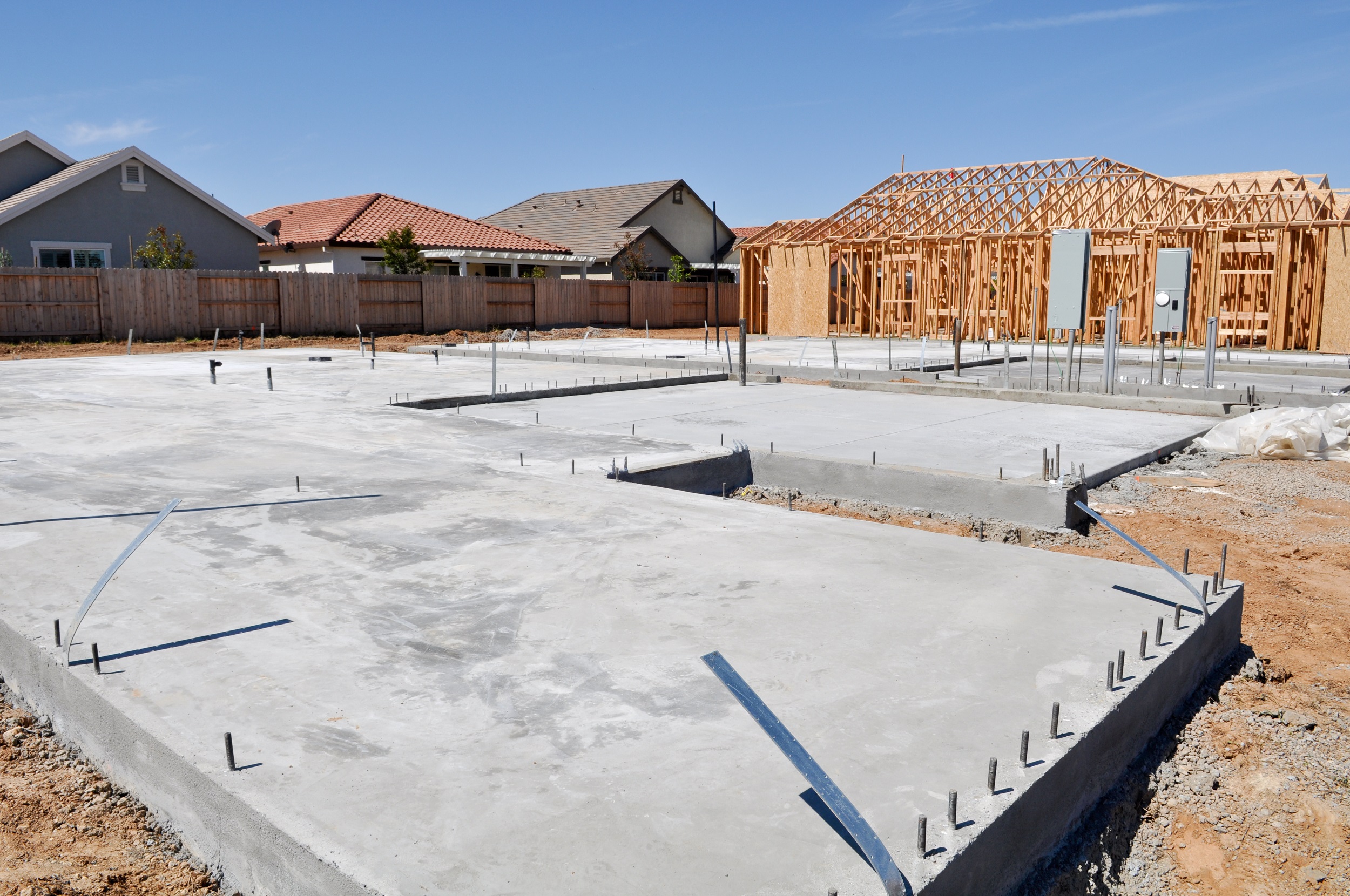What Signs Could Point to Foundation Problems?
Obviously, if the upper portion of your home has separated from the foundation, this is a pretty clear sign of danger. You should call a foundation repair expert ASAP. But below are some of the less obvious signs—symptoms most homeowners overlook until it is too late.
Be on the lookout for any of the following foundation warning signs so that repairs, if needed, will be minimal and affordable.
1. Sticky Windows or Loose-Fitting Doors
If the doors and windows in your home don’t close like they used to, this may be a sign of foundation damage. All homes settle with time, but rapid shifts in the foundation can create uneven gaps in door frames that didn’t exist before.
Although sticky (or loose-fitting) windows and doors aren’t always a sign of foundation problems, these are issues that you’ll want to fix no matter what. When windows and doors don’t close properly, they let air escape from your home, resulting in unnecessarily high heating and cooling bills.
2. Horizontal Wall Cracks
Even the best-built homes in the world develop cracks eventually—especially vertical cracks. And although unsightly, these fissures usually aren’t much to worry about.
But horizontal and perpendicular cracks in the wall are something else altogether. Be sure to do quarterly scans of all internal and external walls throughout the home. At the first sign of danger, bring in an expert before the problem becomes worse.
3. Crumbling Brick or Concrete
In addition to cracks in the walls, you should also check the exterior of your home for any crumbling bricks or concrete. Even when exposed to the elements, these two construction materials should last for decades with no obvious signs of stress. Premature deterioration is a major red flag.
4. Bulges in the Floor or Ceiling
This is not usually a problem you have to actively search for. When furniture looks lopsided or when you trip over a new “bump” under the carpet, you immediately realize that there is an issue. It could be a bulging pipe (that will eventually burst), or it could be foundation damage. Either way, the sooner you request a professional inspection, the better. Left unattended, bulges almost always get worse.
5. Water or Gas Line Leaks
Have you noticed a sudden spike in your gas or water bills? Do you ever hear any hissing behind the walls? Is there unexplainable pooling inside or outside your home?
Or maybe you smell a faint hint of gas — even when the furnace is off and there is nobody cooking in the kitchen.
In the best-case scenario, ignoring the above warning signs will result in higher monthly utility bills. In the worst-case scenario, however, you’ll end up paying higher utility bills and putting your home’s foundation in serious danger.
6. Unsettling Sounds of Settling
As mentioned before, homes settle with time. It’s perfectly normal to hear creaks and groans, especially at night when everything else is quiet. But if your home seems to be making noises with much greater frequency or intensity, you may need to intervene.
Unlike bulges in the floor or cracks in the wall, rating these noises is a highly subjective experience. However, if you hear unsettling sounds of settling (in addition to any of the foundation problem signs on this list), it’s best not to take any chances.
7. Improper Drainage Issues
Does the soil around your home seem unusually dry after a heavy rain? Or maybe it is unusually wet despite zero rainfall in the past week.
If either of these two things happens, your home may have drainage problems that need immediate attention. Improper drainage can lead to uneven soil swelling and contraction. And although not a problem in and of itself, irregular soil expansion can place much greater stress on your home’s foundation, eventually leading to foundation failure.
Protecting Your Home’s Foundation at All Costs
Don’t make the mistake of waiting until your foundation shows unavoidable signs of damage. Conduct periodic inspections several times a year to look for warning signs of foundation damage.
By catching foundation problems early on, you can keep future repairs to a minimum and protect the long-term value of your home.

Brandon Cartee is the owner of Foundation Repair Services, a full-service specialty contracting company that helps both residential and commercial buildings throughout North and South Carolina.



